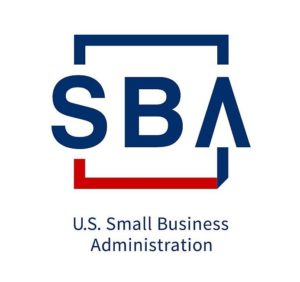
Expert M&A Advisors: Flexible Solutions for Complex Transactions
In today’s dynamic mergers and acquisitions landscape, businesses need experienced advisors who can provide targeted expertise without the rigid structure of traditional full-service engagements. Our boutique M&A advisory firm offers flexible, hourly consulting services that give you access to senior-level expertise precisely when you need them.
Strategic Advisory Services Tailored to Your Transaction
Whether you’re preparing for a sale, evaluating an acquisition opportunity, or navigating complex negotiations, our experienced team provides comprehensive support across all critical aspects of M&A transactions. Our hourly consulting model allows you to leverage our expertise efficiently while maintaining control of your process and budget.
While we still offer clients the option of working with us under the traditional retainer and success fee or commission model, more and more clients are opting for the hourly consulting approach. Here’s why.
Strategic Financial Planning and Analysis
Our seasoned advisors work alongside your executive team to strengthen your financial narrative and strategic positioning. We assist CEOs and CFOs in developing compelling financial presentations that highlight your company’s value drivers and growth potential. Our services include:
- Strategic financial analysis and report preparation
- Custom financial modeling and projections
- Valuation analysis and benchmarking
- Scenario planning and sensitivity analysis
Professional Transaction Management
Successfully navigating an M&A transaction requires meticulous attention to detail and deep market knowledge. Our team provides comprehensive support throughout the entire process:
- Data room preparation and management
- Professional presentation development
- Process mapping and milestone planning
- Timeline management and coordination
Expert Transaction Guidance and Negotiation Support
Leverage our extensive transaction experience to optimize your outcomes. Our advisors provide:
- Market intelligence on current terms and conditions
- Strategic negotiation support
- Term sheet and LOI guidance
- Deal structure optimization
- Purchase agreement consultation
Our Expert Team
Our firm brings together a diverse team of M&A professionals, each contributing specialized expertise to your transaction. Our team includes:
- Investment Bankers with decades of deal experience across various industries
- Financial Analysts who excel at modeling, valuation, and detailed financial analysis
- Project Managers who ensure smooth process execution and milestone achievement
Every team member is carefully selected for their transaction expertise and commitment to client success. This combination of skills ensures you receive comprehensive, professional support throughout your M&A journey.
Cost-Effective Advisory Services
Our innovative hourly consulting model represents a significant departure from traditional M&A advisory fee structures. By eliminating the standard success fee that most investment banks and M&A advisors charge, we can deliver substantial cost savings to our clients while providing the same high-quality expertise and service.
Significant Cost Savings
Traditional M&A advisory fees typically include a substantial success fee ranging from 1% to 5% or more of the transaction value. For mid-market transactions, this can translate to fees between $100,000 and $500,000 or more. Our hourly model eliminates these success fees, potentially saving clients hundreds of thousands of dollars while still maintaining access to top-tier advisory services.
| Fee Component | Retainer & Success Fee | Hourly Approach |
|---|---|---|
| Non-refundable Retainer | $20,000 | $5,000 |
| Success Fee | $300,000 | $0 |
| Professional Hours | 250 | 250 |
| Average Hourly Rate | $0 | $400 |
| Total Advisory Fees | $320,000 | $105,000 |
Flexible Engagement Model
Our hourly consulting approach allows you to access senior-level expertise without committing to a full-service engagement. This approach provides:
- Cost-effective access to expert guidance
- Flexibility to scale services up or down as needed
- Ability to supplement internal resources strategically
- Professional support throughout the transaction lifecycle
Senior-Level Expertise
Every engagement is staffed with experienced M&A professionals who bring:
- Decades of transaction experience
- Deep industry knowledge
- Proven negotiation expertise
- Strategic insight and practical guidance
Client-Centric Approach
We focus on delivering value through:
- Tailored solutions for your specific needs
- Direct access to senior advisors
- Clear, actionable guidance
- Efficient resource utilization
- Avoidance of any conflict of interest that is possible when a success fee is involved
To see if an hourly consulting or success fee engagement is best for you, please read our related article about the pros and cons of each approach.
Partner with Experienced M&A Advisors
In today’s complex M&A environment, having the right advisor can make the difference between a good deal and a great one. Our hourly consulting services provide the flexibility and expertise you need to navigate your transaction successfully while potentially saving hundreds of thousands in traditional success fees.
Contact us today to learn how our experienced M&A advisors can help you achieve your transaction objectives.
About the Author and Jackim Woods & Co
 Rich Jackim is an attorney, investment banker, and entrepreneur. For the last 30 years, Rich and his team have been providing boutique investment banking services to small and middle-market companies in over 30 industries.
Rich Jackim is an attorney, investment banker, and entrepreneur. For the last 30 years, Rich and his team have been providing boutique investment banking services to small and middle-market companies in over 30 industries.
In addition to running a successful M&A advisory firm, Rich founded a successful training and certification company called the Exit Planning Institute, which he sold to a private family office in 2012.
Rich is also the author of the critically acclaimed book, The $10 Trillion Dollar Opportunity: Designing Successful Exit Strategies for Middle Market Businesses. It became an Amazon best-seller in the business consulting category the year it was published.
If you own a business and are interested in exploring your options, I would welcome an opportunity to speak with you. There is no cost or obligation to you and all discussions are completely confidential.
Feel free to contact me at 224-513-5142 or rjackim@jackimwoods.com.
Read More
Well-Funded Buyer Seeks Title IV Vocational College
Our client is a well-funded teaching dental clinic that provides a 1- and 2-year dental residency program for dentists and a training program for Dental Assistants.
They have grown organically over the years and now have multiple locations, but they are now looking to accelerate its growth by acquiring a Title IV college so students can participate in the Federally Guaranteed Student Loan Program.
ACQUISITION CRITERIA:
> Post-Secondary Educational Institution that participates in the Title-IV Student Loan Program.
> Certificate & diploma programs less than two years in duration
> Allied Healthcare, Dental Assisting/Hygienist, and Nursing programs are of great interest, but all programs will be considered
ACCREDITATION:
> ABHES or ACCSC preferred (but other accreditors will be considered)
LEGAL/REGULATORY:
> Clean regulatory record with no outstanding issues with U.S. DOE or the school’s accreditor
> No past or current litigation or outstanding claims
FINANCIAL PERFORMANCE:
> Annual revenue between $200,000 and $5 million
> Profitable operations preferred (will also consider schools that are losing money or at break-even)
LOCATION:
> OH, PA, IN, MI, KY, WV (but other locations will be considered as well)
BENEFITS OF SELLING:
> Motivated strategic buyer (accredited by the Joint Commission, AAAHC and CODA)
> A strong balance sheet with ready access to capital
> Proven growth strategy
> Career opportunities for you and your employees
NEXT STEPS:
Contact Rich Jackim at Jackim Woods & Co. (rjackim@jackimwoods.com or 847-682-4997) to learn more and determine if partnering with us would help you meet your personal and business goals.
Read More
Acquisitions in the Education and Edtech Sectors in 2024
The following is a summary of mergers and acquisitions transactions in the education and edtech sectors in 2024. We will update this post every two weeks as we work with more clients and learn of other deals in the sector.
The education and edtech sectors have been off to a slow start in 2024. This is following a significant drop in valuations in 2022 and 2023 as edtech companies no longer benefited from the COVID boost in 2022, and many were no longer profitable in 2023.
For many in the industry, 2023 was a tumultuous year. Numerous deals were close to closing but fell apart during due diligence. Interest rates continued to rise, inducing anxiety around the cost of borrowing and requiring buyers to require a higher overall return on their investment, which depressed valuations.
At the same time, investors had to rethink their investment criteria due to a rash of bad decisions they made during the frenzy of the COVID pandemic. Since then, most Edtech investors opted to take a much more cautious and conservative approach after making investments at inflated valuations in 2020 and 2021 that might have made sense during COVID, but now appear ridiculous in hindsight. Post-COVID, entire segments of the education sector have been shaken up – from the increased regulation on for-profit Title IV colleges and regulations that effectively put OPM providers “on life support” to concerns about the implications surrounding the expiration of ESSER funds and the effect that will have on preK-12 education.
As a result, valuations for small, medium, and large edtech companies are back to their pre-COVID levels and are still significantly higher than valuations for traditional businesses. The average small and medium-sized edtech company is valued at 2x to 3x trailing twelve-month annual recurring revenue.
Acquisitions in the Education and Edtech Sectors in 2024
Below is a summary of the mergers and acquisition transactions in the education and edtech sectors so far in 2024. This is by no means an exhaustive list as many smaller transactions are never announced. This list only represents the deals we have learned about through our network or that we have been directly involved in. I’ll do my best to update the list every two weeks.
In November,
H.I.G. Capital and Thoma Bravo signed a definitive agreement to acquire CompTIA Brand and Products. CompTIA is the world’s largest and most well known information technology (IT) certification and training organization focused on promoting industry growth and skills development across the global IT ecosystem and its millions of professionals.
KidsKonnect, a Netherlands-based early-years organization, has acquired NoodleNow, a UB-based teacher training provider for early childhood education, to expand into the UK.
Vitality, a UK-based behavioral health platform, has acquired WellSpark, a US-based coaching provider, to integrate its tools into existing health plans.
In October,
EQT AB, a Swedish investment firm, acquired international schools operator, Nord Anglia Education, for $14.5 billion, making it one of the largest Education deals in since the pandemic. Nord Anglia Education operates over 80 schools in 33 countries and educates more than 85,000 students a year.
ILAC Education Group acquired the US-based UniApplyNow, a university admission platform, to strengthen its North American higher education platform customer base. The terms were not disclosed.
Trainocate, an IT education company, acquired EnterOne, an advanced technology training and services provider, to expand Trainocate’s global presence.
Boathouse Capital’s portfolio company, Guidewell Education, acquired College Matchpoint to expand college admissions support for students nationwide.
OffSec, a US-based cybersecurity training provider, was acquired by Leeds Equity Partners.
In September,
Novakid, a provider of online English language lessons for K-12 students, acquired Lingumi, a U.K.-based English learning app.
The online university, Western Governors University, acquired Craft Education, an education technology company that specializes in apprenticeship programs.
Savvas Learning Company, K-12 learning solutions provider, acquired Pointful Education, a provider of online career and technical education courses.
A Swiss media-centric investment firm, CosmoBlue Media, acquired Macademia, a gamified education provider for children.
TouchMath, a US-based K12 math education provider, has acquired Classworks, a K12 math EdTech firm, to expand its product offerings.
In August,
Roper Technologies agreed to acquire Transact Campus, a higher ed payment and ID company, for $1.5 billion.
IT company Climb Global Solutions acquired Douglas Stewart Software & Services, an SaaS solutions company focused on education, for $20.3 million.
In July,
Neuberger Berman, a U.S. asset manager, is close to acquiring a minority stake in Nord Anglia Education, an international network of schools. Insiders report that the Neuberger Berman will invest $15 billion in the deal. That would be the largest K-12 deal in years.
IXL Learning, the company that owns Rosetta Stone and Dictionary.com, acquired Carson Dellosa Education, a teaching supplies publisher. The amount was not disclosed.
Instructure, the public company that makes the Canvas learning management system that is used by many schools and colleges, will be taken private by the large private equity group, KKR in a transaction worth $4.8 billion. That’s the single largest edtech deal in years. At the same time, Instructure acquired student records management platform Scribbles.
School safety software company Raptor Technologies acquired payments and ticketing provider PayK12.
Intelvio, a healthcare education company backed by Eden Capital, acquired the Professional Crisis Management Association (PCMA). PCMA is a crisis management training and certification company based in Sunrise, Florida. The acquisition enhances Intelvio’s existing behavioral health offerings and expands the Company’s overall healthcare training platform.
Edwin Group, the UK’s largest provider of supply teachers, what we in the U.S. call “substitute teachers” was acquired by Quad Partners, a U.S. based private equity firm, highlighting the potential growth of solutions to address global teacher shortages.
The animation studio Hobbes was acquired by Duolingo, the very popular language learning app. No terms were disclosed.
The Indian edtech giant Byju filed for bankruptcy protection. The company will likely sell off its operating divisions and edtech products. This flood of deals on the market is likely to depress valuation of edtech companies for the next 12 months.
EdPower, a LMS provider in the U.S. was acquired by Prometric, a US-based testing and assessment provider. The terms were not disclosed.
Genius Teacher, an Indian EdTech that provides content for primary school teachers was acquired by Schoolnet, a US K12 management system.
In June,
The College of Court Reporting, an Indiana-based nationally accredited, degree-granting court reporting college was acquired by a strategic buyer that owns and operates several other vocational colleges. Jackim Woods represented the seller and arranged the transaction.
Instructure, (NYSE: INST) a Utah-based learning management software company, acquired Scribbles Software, a North Carolina-based company that provides software solutions for K-12 school districts, to bolster it’s K12 offering. The terms of the transaction were not disclosed.
TicTac Group, a Swedish company providing e-learning solutions, acquired Skillhabit, a Swedish AI-driven learning platform.
PepTalkHer, a New York-based coaching platform, acquired Mettacool, a Wisconsin-based E-learning and coaching platform. The terms of the transaction were not disclosed.
Raptor Technologies, a Texas-based provider of school safety software, acquired PAYK12, an Indiana-based cloud-based education finance management company.
Children’s publisher Scholastic acquired 9 Story Media Group, which produces children’s content for $182 million.
Digital curriculum company Imagine Learning has acquired CueThink, a platform that uses artificial intelligence tools to improve students’ critical thinking in math instruction.
While not an acquisition, there is an interesting update on Byju. Investment giant Prosus says that wrote off its $2.1 billion investment in Byju’s stating they now believe its 9.6% investment in the company is worthless. This will certainly have a chilling effect on valuations in the edtech sector.
ClearCompany, a provider of human capital management software, owned by Gemspring Capital, acquired Brainier Solutions Inc. (“Brainier”), a leading provider of innovative learning management software for corporate clients. The terms of the deal were not disclosed.
In May,
PowerSchool, a K-12 software company, announced that it may go private in a $6 billion deal with Bain Capital, according to press reports. The deal is pending. We will update the details once the deal is finalized. This is likely to be the largest edtech deal to date.
Follett School Solutions acquired MasterLibrary, maker of a facility management platform. The terms were not disclosed. MasterLibrary allows districts to manage facility scheduling, work orders, fees, rentals, and reservations, as well as access, edit, and customize floor plan drawings.
Class Over, a K-12 online course provider, is being merged with Battery Future Acquisition in a $135 million deal.
Domoscio, a French adaptive learning platform, was acquired by Rise Up, a French active learning platform, to expand its offerings in the space.
Tustawi, a digital education platform in Kenya, was purchased by Castnet Learning, an online education platform. This acquisition will allow Castnet to expand its service offerings to Kenya.
95 Percent Group, a literacy curriculum provider in the US, acquired Sortegories, a language learning app for K12 students. This acquisition will expand 95 Percent Group’s digital offerings for language learning.
In April,
Basis Vectors Capital, a private equity firm focused on vertical SaaS, acquired Cadient Talent, a talent acquisition solutions provider in the hourly hiring sector , to expand their portfolio of SaaS solutions and to expand Cadient’s growth. The terms were not disclosed.
Follet School Solutions acquired MasterLibrary, a K-12 solutions provider. The amount was not disclosed.
Wonderschool acquired ChildcareMatters, a substitute teacher staffing platform. The amount was not disclosed.
LEORON Institute, a corporate training EdTech company, acquired UAE-based XpertLearning, the leading professional training and development provider in the Middle East, to expand their market expansion in the region.
The tech training and development solutions provider, GenSpark, acquired ProGrad, an Indian end-to-end sourcing, screening, and training solutions provider, to broaden their service offerings in the APAC and Indian markets.
Kangarootime, a childcare management software provider for early education centers, acquired Clay, an AI-powered lesson planner. The terms were not disclosed.
Keystone Partners, a career transition and outplacement services provider, acquired CEC, which offers certification and training for coaching careers. The amount wasn’t disclosed.
Viking Mergers & Acquisitions, a business brokerage firm, acquired Sea School, a maritime licensing and education provider.
CareerArc, a hiring and recruiting company, acquired Lumina, a leading SaaS platform for generating visual job postings at scale. The amount wasn’t disclosed.
The content curation platform, Wakelet, acquired Bulb, a digital portfolio provider used primarily by teachers and job applicants, for an undisclosed amount.
IXL Learning, creator of adaptive online learning systems, as well as the owner of Rosetta Stone, acquired Dictionary.com for an undisclosed amount.
Wonderschool, a startup that provides software and support to help individuals and local governments spin up childcare businesses, has acquired EarlyDay, which operates an early childhood educator marketplace. The terms of the transaction were not disclosed.
In March,
the children’s publisher Scholastic acquired 9 Story Media, a children’s content producer and distributor, for a reported $186 million.
StraighterLine, an online course provider, acquired ProSolutions Training, an early childhood education training provider, for an undisclosed amount.
The online learning platform Skillshare completed its acquisition of Superpeer. The acquisition will expand Skillshare’s on-demand course offerings. The terms of the deal were not disclosed.
Accenture acquired Udacity, one of the pioneers of large-scale online courses. The terms of the deal were not disclosed, but it was announced at the same time Accenture announced a $1 billion investment to create a new learning platform focused on AI, called LearnVantage. Accenture reportedly paid only $80 million for Udacity, which back in 2012 had raised over $300 million in venture capital investments.
Leeds Equity Partners acquired TouchMath, a K-8 math curriculum provider.
The U.S.-based language learning solutions provider, Wayside Publishing, , acquired Nualang, which develops tools for world language classrooms. The transaction details were not disclosed.
Kido International, an international daycare and preschool design, technology and learning company, acquired Amelio Early Education, a preschool and daycare operator. The amount was not disclosed, but is estimated to be north of $7.5 million.
Ellucian acquired EduNav, an academic planning and student success tool platform, for an undisclosed amount.
HMH acquired Writable, which provides a K-12 writing assessment and practice solution.
In February,
Communications and attendance software provider SchoolStatus acquired SchoolNow, a 25-year-old company that offers K-12 districts a website, app, and social media management platform.
Cognia, a forward thinking nonprofit organization laser-focused on improving educational opportunities for all learners, has agreed to purchase CenterPoint Education Solutions, a nonprofit organization that specializes in building cohesive education systems consisting of high-quality curriculum, aligned assessments, and expert professional learning.
CentralReach, publisher of autism software for special education teachers and caregivers, purchased New Jersey-based social and emotional learning software provider SILAS.
Podium Education, a career accelerator platform that partners with colleges to offer for-credit learning experiences to help students gain in-demand skills and work experience as part of their degree, acquired Untapped, a career opportunities software company, for an undisclosed amount.
Savvas, a K-12 solutions company, acquired Outlier.org, which offers online dual credit courses. The amount was not disclosed.
The National Association for Community College Entrepreneurship acquired SkillPointe, a skill-based career platform, for an undisclosed amount.
Avenue Growth Partners acquired a minority stake in BridgeCare, an infrastructure platform for early childhood education, for $10 million.
Google acquired Edlyft, an AI tutoring platform, for an undisclosed amount.
In January,
Oliver Solutions, a digital training platform, acquired Spiffy for an undisclosed amount.
Instructure Holdings, Inc. (Instructure) (NYSE: INST), the leading learning ecosystem and maker of Canvas, announced today it has completed the acquisition of Parchment, the world’s largest credential management platform and network.
Avathon Capital acquired Magical Beginnings, a network of early childhood learning centers in Massachusetts, for an undisclosed amount.
Google acquired Edlyft AI Tutor, an AI-powered STEM upskilling platform that seeks to make computer science education more accessible, especially for Black students.
Quantum5, an automotive training platform acquired Trivie, an AI-powered provider of a workforce engagement platform that personalizes learning content.
Avathon Capital, a private equity firm, acquired Magical Beginnings Learning Centers, a Massachusetts-based network of early childhood education centers.
ETS, the language testing company that runs TOEFL, acquired PSI, a U.S.-based language testing company. The amount was not disclosed.
Follet School Solutions, a K-12 edtech company, acquired Livingtree, a platform for fundraising management, for an undisclosed amount.
PowerSchool acquired Allovue, a K-12 financial planning, budgeting and analytics software provider, for an undisclosed amount.
Intelvio, a healthcare education company backed by Eden Capital, acquired Classward, an online provider of continuing education for aspiring and current EMS professionals. Classward’s EMS content complements Intelvio’s growing platform focused on solving healthcare employee shortages across the US.
Upgrad Education announced that it is in negotiations to acquire Udacity. It also stated that it intends to raise $100 million, a large part of which will be used to finance the purchase, according to media reports.
We will update this post every two weeks as we learn about other transactions and close more deals in the education sector.
Read our previous article for information about mergers and acquisitions deals in the education sector in 2003 or our previous article about mergers and acquisitions deals in the education and edtech sectors that closed in 2002.
About the Author and Jackim Woods & Co.
 Rich Jackim is an education industry investment banker, education industry entrepreneur, and former mergers and acquisitions attorney.
Rich Jackim is an education industry investment banker, education industry entrepreneur, and former mergers and acquisitions attorney.
For the last 25 years, Rich has been providing boutique investment banking services to middle-market companies in the education sector.
Rich also founded a successful training and certification company called the Exit Planning Institute, which he sold to a private equity group in 2012.
Rich is also the author of the critically acclaimed book, The $10 Trillion Dollar Opportunity: Designing Successful Exit Strategies for Middle Market Businesses.
Jackim Woods & Co offers skilled mergers and acquisitions advisory services to privately owned schools, colleges, and EdTech companies in both sell-side and buy-side transactions. Jackim Woods & Co has arranged over 100 successful transactions, ranging from less than one million to more than eighty million dollars in value.
If you own an education-related business and are interested in exploring your options, I would welcome an opportunity to speak with you. Feel free to contact me at 224-513-5142 or rjackim@jackimwoods.com.
Read More
SBA Payment Forgiveness Expected to Fuel Acquisitions in 2021
As was the case last year, COVID-related federal stimulus benefits are expected to be a powerful catalyst driving deal activity in 2021.
 On December 27, 2020, Congress passed the Consolidated Appropriations Act, 2021, a $2.3 trillion stimulus bill, with $900 billion targeted specifically for COVID-19 relief. A portion of these funds will be used to extend the popular 2020 CARES Act SBA Debt Relief program.
On December 27, 2020, Congress passed the Consolidated Appropriations Act, 2021, a $2.3 trillion stimulus bill, with $900 billion targeted specifically for COVID-19 relief. A portion of these funds will be used to extend the popular 2020 CARES Act SBA Debt Relief program.
According to Rich Jackim, Managing Partner of Jackim Woods & Co, the extension includes significant benefits that provide buyers with powerful incentives to acquire a business in 2021, including:
- Six months of payment forgiveness for SBA 7(a) loans closed after February 1, 2021, and before September 30th, 2021. This includes principal and interest up to a maximum of $9,000 per month. That’s a $54,000 benefit to buyers.
- The SBA will waive the guaranty fee that must be paid by borrowers. This fee is typically around 3% of the loan amount and will now be zero for loans closed before September 30th, 2021. That’s an average saving to buyers of approximately $4,500.
- The SBA is increasing the amount of loan guarantees to lenders from 75% to 90%. This will decrease the risk to lenders and help ensure liquidity for deal financing.
Jackim urges buyers who want to take advantage of the extension to learn from the mad rush to meet last year’s deadline. It required tremendous coordination between sellers, buyers, counsel, intermediaries, and lenders. “The lesson buyers learned last year is not to procrastinate and try to close at least 30 days before the deadline to accommodate potential delays,” says Jackim.
What does this mean for sellers? If you are thinking of selling your business, now may be the right time despite the pandemic. In addition to record low interest rates, the SBA Payment Forgiveness Program provides buyers with extremely low financing costs. Last year we sold two businesses for over asking price because the buyers were able to afford to pay more due to the 2020 SBA Payment Forgiveness Program. Once the pandemic is under control, it is unlikely buyers will have access to the same generous funding they have today.
To learn more about taking advantage of the 2021 SBA Payment Forgiveness Program contact Rich Jackim at 224-513-5142 or at rjackim@jackimwoods.com.
Read More
Negotiating the Price Gap Between Buyers and Sellers

Sellers generally desire all-cash transactions; however, oftentimes partial seller financing is necessary in typical middle market company transactions. Furthermore, sellers who demand all-cash deals typically receive a lower purchase price than they would have if the deal were structured differently.
Although buyers may be able to pay all-cash at closing, they often want to structure a deal where the seller has left some portion of the price on the table, either in the form of a note or an earnout. Deferring some of the owner’s remuneration from the transaction will provide leverage in the event that the owner has misrepresented the business. An earnout is a mechanism to provide payment based on future performance. Acquirers like to suggest that, if the business is as it is represented, there should be no problem with this type of payout. The owner’s retort is that he or she knows the business is sound under his or her management but does not know whether the buyer will be as successful in operating the business.
Moreover, the owner has taken the business risk while owning the business; why would he or she continue to be at risk with someone else at the helm? Nevertheless, there are circumstances in which an earnout can be quite useful in recognizing full value and consummating a transaction. For example, suppose that a company had spent three years and vast sums developing a new product and had just launched the product at the time of a sale. A certain value could be arrived at for the current business, and an earnout could be structured to compensate the owner for the effort and expense of developing the new product if and when the sales of the new product materialize. Under this scenario, everyone wins.
The terms of the deal are extremely important to both parties involved in the transaction. Many times the buyers and sellers, and their advisors, are in agreement with all the terms of the transaction, except for the price. Although the variance on price may seem to be a “deal killer,” the price gap can often be resolved so that both parties can move forward to complete the transaction.
Listed below are some suggestions on how to bridge the price gap:
- If the real estate was originally included in the deal, the seller may choose to rent the premise to the acquirer rather than sell it outright. This will decrease the price of the transaction by the value of the real estate. The buyer might also choose to pay higher rent in order to decrease the “goodwill” portion of the sale. The seller may choose to retain the title to certain machinery and equipment and lease it back to the buyer.
- The purchaser can acquire less than 100% of the company initially and have the option to buy the remaining interest in the future. For example, a buyer could purchase 70% of the seller’s stock with an option to acquire an additional 10% a year for three years based on a predetermined formula. The seller will enjoy 30% of the profits plus a multiple of the earnings at the end of the period. The buyer will be able to complete the transaction in a two-step process, making the purchase easier to accomplish. The seller may also have a “put” which will force the buyer to purchase the remaining 30% at some future date.
- A subsidiary can be created for the fastest growing portion of the business being acquired. The buyer and seller can then share 50/50 in the part of the business that was “spun-off” until the original transaction is paid off.
- A royalty can be structured based on revenue, gross margins, EBIT, or EBITDA. This is usually easier to structure than an earnout.
- Certain assets, such as automobiles or non-business-related real estate, can be carved out of the sale to reduce the actual purchase price.
Although the above suggestions will not solve all of the pricing gap problems, they may lead the participants in the necessary direction to resolve them. The ability to structure successful transactions that satisfy both buyer and seller requires an immense amount of time, skill, experience, and most of all – imagination.
The post Negotiating the Price Gap Between Buyers and Sellers appeared first on Deal Studio – Automate, accelerate and elevate your deal making.

SBA Introduces Partial Loan Payment Program for Business Buyers
As part of the $2.2 trillion CARES Act, the SBA is now offering to make six months of payments on SBA loans, including both principal and interest. This partial payment program is part of the SBA’s flagship 7a loan program and applies to both existing SBA loans as well as new SBA loans that are closed before September 27th, 2020. SBA lenders, the public stock market, and businesses of all sizes recognize that a significant disruption has occurred in their business activities. The SBA is paying six months of payments for current SBA borrowers to relieve stress on business owners and attempting to “keep our small business economy going.”
It is important to note that this is not a payment deferment plan, instead, the SBA will actually make payments of principal and interest for buyers.
If you are a potential buyer, it’s important to remember the following:
- This is a temporary economic incident. There is no fundamental economic weakness.
- There is lots of liquidity in the finance and banking sectors, this is not a repeat of the 2008 financial crisis.
- Interest rates are at an all-time low and are unlikely to go up soon. As of mid-April, the interest rate for a 10-year SBA 7a business acquisition loan was 6%.
- Businesses in essential industries, like food processing, distribution, manufacturing, online retail, third party logistics, delivery, warehousing, IT, and healthcare may actually see an improvement in overall financial results.
- Many small businesses will benefit from pent up demand.
- Businesses that were overpriced at the end of 2019 will be repriced to reflect current market conditions.
- Many small businesses will see a decrease in wage costs as the unemployment rate increase and workers look for new employment.
If you are interested in taking advantage of this program, keep in mind that deals must be closed by September 27, 2020 to qualify. So, working backward, you may want to keep the following timeline in mind:
- Sign letter of intent – May 15th
- Complete Buyer’s Due Diligence – June 1st
- Secure Lender’s Financing Proposal – June 15th
- Lender Submits Loan to Underwriting – June 30th
- Lender Underwriting Completed – July 31th
- Purchase Agreement Completed – August 28th
- Target Closing Date – September 1st
- Fall-back Closing Date – September 15th
- Drop Dead Closing Date – September 27th
Since the CARES Act became law, we have had several conversations with bankers and non-bank lenders. They believe this is a once in a lifetime opportunity for entrepreneurs who are thinking about buying a business. They have shared with us some of the insights they are getting from their credit committees and executives that are being taken into account when reviewing loan applications and making a credit decision before issuing a loan term sheet:
- Lenders realize now is not the time for inexperienced entrepreneurs to be buying a business. Lenders are looking to back buyers with strong operating track records, a solid personal balance sheet, and a clear vision about how they will be able to rebuild sales and pay down debt in a post-Coronavirus economy.
- Even though the SBA will be making the payments for the first six months on newly originated loans, lenders can not take that into the credit decision. To qualify for the program, the cash flow of the business needs to be able to support the loan payment without taking into account the SBA payments.
- Lenders are willing and able to take into account the impact the Coronavirus has had on the business when valuing a business, but buyers must have a clear and realistic plan to get cash flow back to pre-pandemic levels.
- Certain businesses, especially those that provide “essential services” are especially attractive candidates for this program right now, because they were not as severely impacted by the pandemic as other businesses.
For additional information about this unique SBA loan payment program, visit the BizBuySell Financing Resource Center or contact Richard Jackim at 224-513-5142 or at rjackim@jackimwoods.com.
Read More
Tackling Growth Delusions When Buying a Business

There is no doubt about it, it can be exciting to buy a new business. However, in the process, it is very important that you don’t become unrealistic about future growth. Keep in mind that in the vast majority of cases, if a business is poised to quickly grow substantially, the seller would be far less interested in selling.
Richard Parker’s recent article for Forbes entitled “Don’t Be Delusional About Growth When Buying a Business” seeks to instill a smart degree of caution into prospective buyers. Parker notes that when evaluating a business and talking to the owner, many buyers come away with a sense that enormous growth is just “sitting there” waiting to be seized. In particular, Parker cautions those buyers who are buying into an industry that they know nothing about; those individuals should be very careful.
When buying into an industry where one has no familiarity, there can be a range of problems. The opportunities that you see may not have been tapped into by the existing owner for a range of reasons. You couldn’t possibly guess what these reasons might be without more of a knowledge base. Since you are an outsider, you likely lack the proper perspective and understanding. In turn, this means you may see growth opportunities that may not exist, as the seller may have already tried and failed. Summed up another way, until you actually own the business and are running it on a day to day basis, you simply can’t make a proper assessment of how best to grow that business.
The seductive lure of growth shouldn’t be the determining factor when you are looking for a business. A far more important and ultimately reliable factor is stability. The real question, the foundation of whether or not a business is a good purchase option, is whether or not the business will maintain its revenue and profit levels once you’ve signed on the dotted line and taken over. You want to be sure that the business doesn’t have to grow to remain viable.
As Parker points out, the majority of small business buyers will buy in a sector where they don’t have much experience, and that is fine. What is not fine is assuming that you can greatly grow the business. Of course, if new buyers can achieve that goal, that is great and certainly icing on the cake. But don’t depend on that growth.
In the end, everyone has some ideas that work and some that don’t. You may take over a business and, thanks to having a different perspective than the previous owner, are able to find ways to make that business grow. But realize that many of your ideas for growing the business may fail completely.
A professional business broker will be able to help you determine what business is best for you. A business broker will help keep you focused on what matters most and steer you clear of the mistakes that buyers frequently make when buying a business.

A Closer Look at 3 Major Factors to Consider When You Buy a Business

The simple but undeniable fact is buying a business is one of the single greatest financial decisions a person can make. Buying a business can lead to great financial success or great financial failure. This fact helps to underscore why it is so important to work with an experienced broker who can help guide you through the often labyrinthian process of buying a business.
In a July 2019 article from Smallbusiness.co.uk, author Kyle Carins explores three key factors that everyone should consider before they buy a business. The first factor covered in Carins’ article, “3 Things to Consider When Buying a Business,” is appeal vs. viability.
Appeal Vs. Viability
Not surprising, the most important variable for most prospective owners is that the business is indeed viable. Not being able to differentiate between an appealing business and one that is viable can lead to financial disaster.
As Carins points out, “Do you want to make money or do you want to fulfill a dream?” Sometimes those two variables can intersect, but not always and not often. In the end, it is vital to know whether a given business is, in fact, potentially lucrative.
However, as Carins points out, it is also important that you choose a business that you will enjoy. Nothing can be more spirit crushing than running a business that you truly hate, even if it is lucrative. Selecting the right business for you is something of a balancing act that must take in a variety of often competing variables.
Considering Hidden Costs
The second factor that Carins looks at is the issue of “hidden costs.” One of the key reasons that it is so important to work with a business broker is that a business broker understands these kinds of factors that you might otherwise overlook. Due diligence is amazingly important. For those who have never bought a business before, working with a business broker offers substantial protection against making a potentially serious mistake.
Second Opinions
The third factor examined in Carins article is “Getting a second opinion.” For Carins, getting a second opinion is actually linked to due diligence. He feels that additional opinions regarding a given business should go beyond working with professionals and should also include talking to friends and family who know you well. Additional opinions can help one see angles that might otherwise be missed.
Again, buying a business is complicated and will take up a good deal of one’s time and mental energy. Your friends and relatives, understand your personality and your wants and desires. Their input can be particularly beneficial.
Finding an experienced business broker can help you do more than simply establish whether or not a given business is a “good deal.” Brokers with years of proven experience can also help you determine whether or not a specific business is a good fit for you and your lifestyle.
